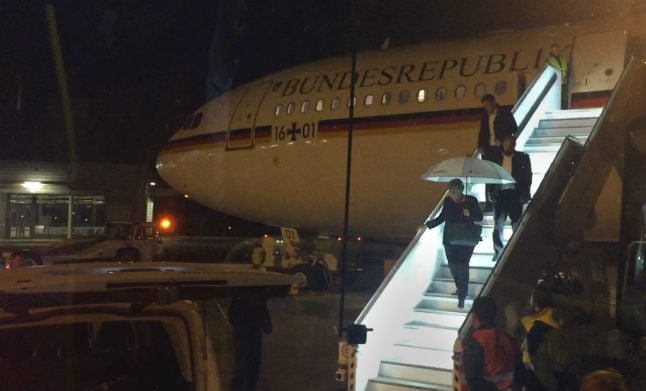“The decision on the acquisition of three A350 is not yet taken, but it is undoubtedly expected very soon,” said a Ministry spokesman.
A series of defects have plagued German government planes in the past few months, including a breakdown that forced Chancellor Angela Merkel to delay her trip to a G20 summit last November.
SEE ALSO: Bumpy start to G20 summit for Merkel as plane forced to make emergency landing
According to newspaper Bild, the defence ministry has ordered three new Airbus A350s for a total cost of €1.2 billion by 2026.
Each plane costs €640 million, according to Bild, and will also be equipped with special features such as VIP booths for members of government, costing an additional €288 million.
An extra €229 million will be spent on spare parts and “self-protection systems”, the paper said.
The aircraft should be available by June 2020.
SEE ALSO: Not a unique occurrence: How plane problems have plagued German politicians' travel
Two of them will replace two A340-300s that have been in service and used for years, Bild said.
In recent months a host of problems have effected government planes, including an Airbus carrying Foreign Minister Heiko Maas which burst a tyre landing in New York.
In another incident a month ago, the foreign minister was stranded in Mali due to a hydraulic problem with his Airbus A319's landing gear.
At the end of January, President Frank-Walter Steinmeier was stuck in Ethiopia due to breakdown with his plane, while Development Minister Gerd Mueller had to cancel a trip to Namibia at the start of the year owing to problems with his plane.
Out of 1,743 government flights between 2016 and 2018, 21 government flights were cancelled or otherwise affected by technical defects, according to official data.




 Please whitelist us to continue reading.
Please whitelist us to continue reading.
Member comments